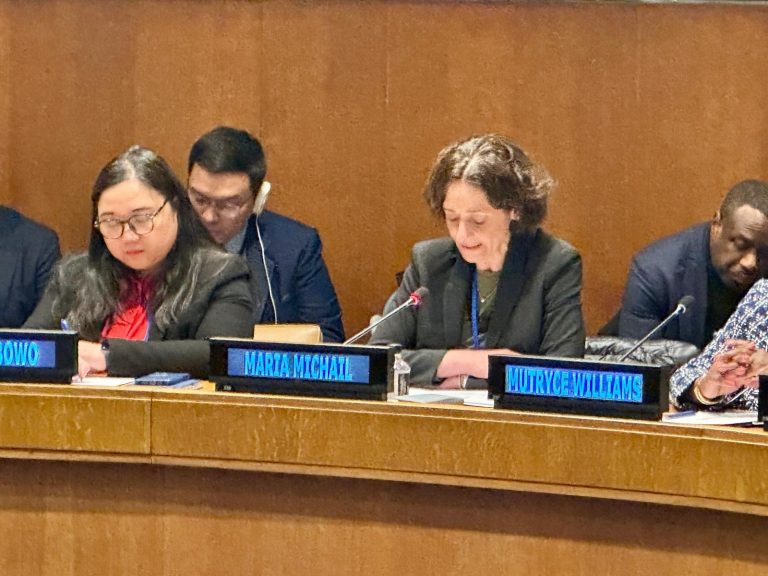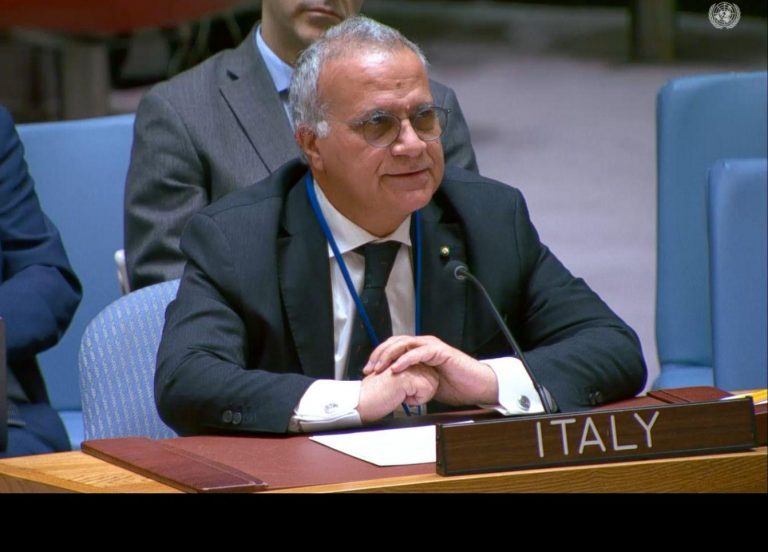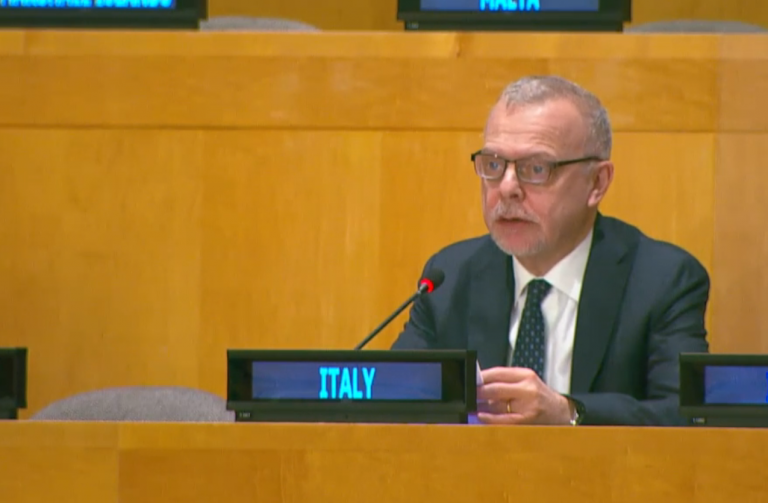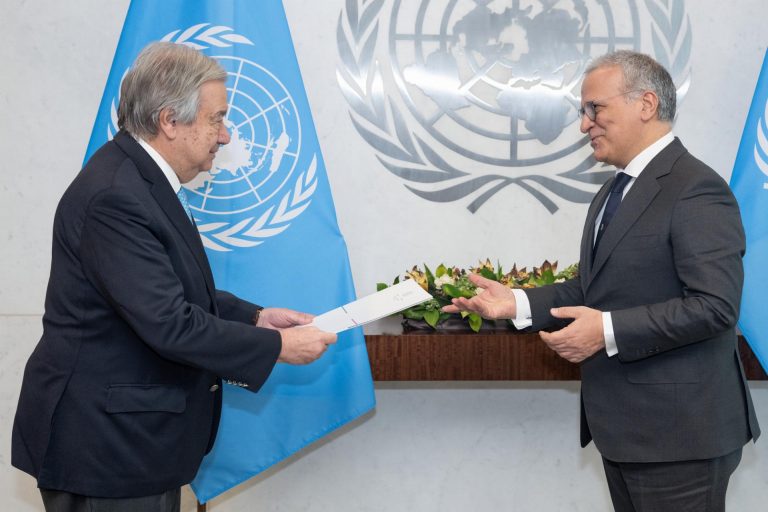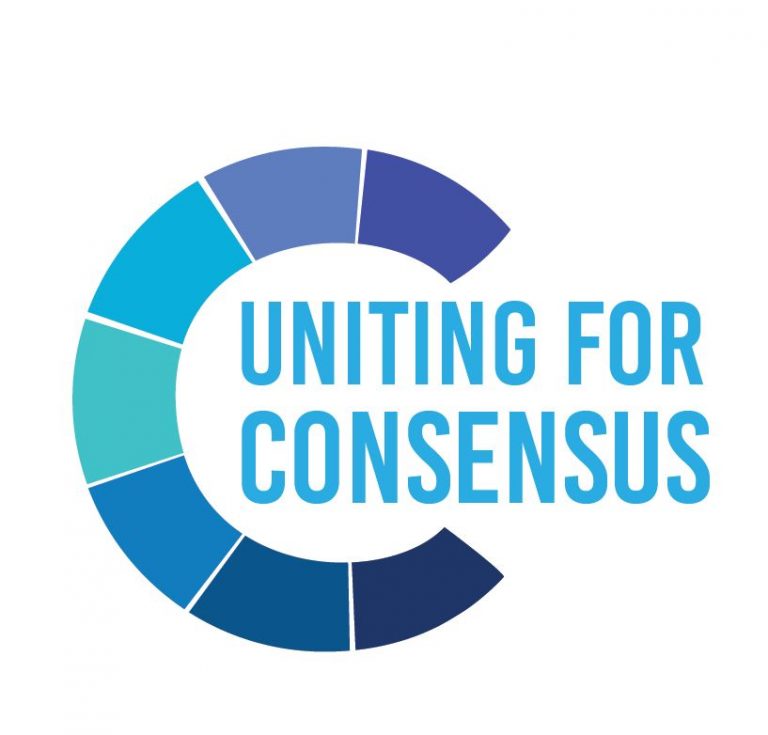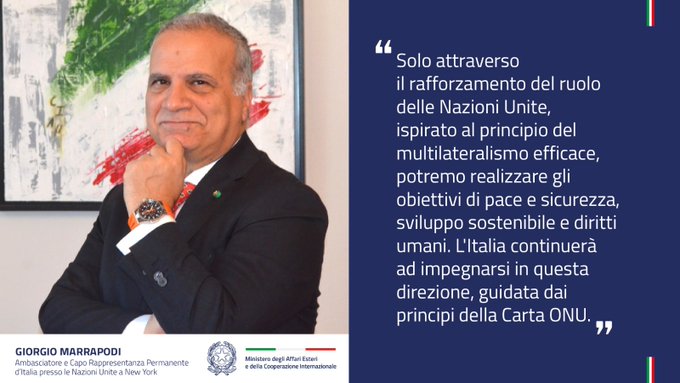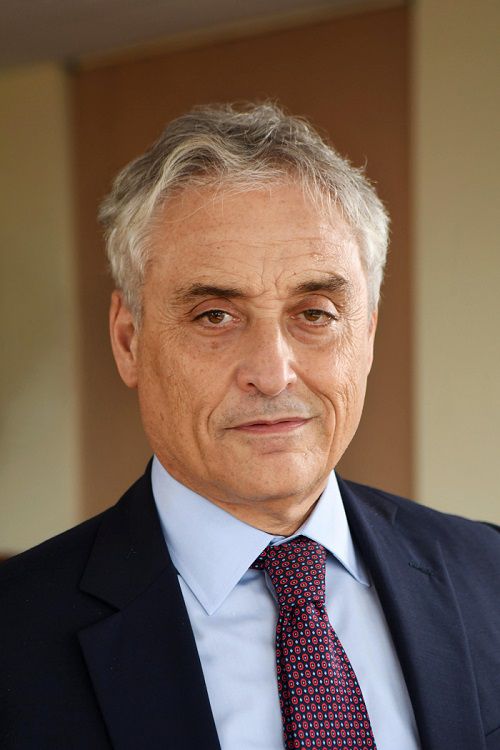Dichiarazione a nome dei Co-Presidenti del Gruppo di Amici della Cultura alle Nazioni Unite, pronunciata dall’Ambasciatore Maurizio Massari e dalla Rappresentante Permanente di Cipro alle Nazioni Unite, Maria Michail
Excellencies,
distinguished colleagues,
esteemed guests,
On behalf of the co-chairs of the Group of Friends of Culture, we would like to extend our great appreciation to the Permanent Representations of Uzbekistan and Indonesia to the United Nations for convening this discussion. Allow us to extend our gratitude for the kind invitation to address this important event today.
The Group of Friends, co-Chaired by Cyprus, Egypt, Italy, Mexico, and the United Arab Emirates, is dedicated to advocating for the strategic integration of culture into the United Nations agenda in New York. Although it was launched only last month, the Group of Friends has already received a warm welcome from Member States and Observers, showcasing the importance of culture as a transformative force. We are very content to see Uzbekistan as one of our first members joining the group, and we extend a warm invitation to all delegations to join this effort.
As co-Chairs, we launched this initiative informed by our trust in culture not only as bedrock of our identities, values, and heritage, but, in culture as a force for resilience, social cohesion, environmental protection, and sustainable development.
In the rapidly changing world, culture is central to the efforts to address the impact of contemporary challenges associated with the global landscape, including the multitude of environmental concerns and the consequences of climate change, increasing job insecurity, as well as the accelerated digital transformation.
Fostering access to cultural goods and services, free participation in cultural life, and freedom of artistic expression have positively contributed to forging inclusive and equitable societies. Culture undoubtedly can give a new impetus to sustainable development, peace and stability, while simultaneously contributing to the respect, protection and promotion of human rights and cultural diversity.
Your Excellencies,
Our biggest commitment reflected in 2030 Agenda for Sustainable Development is to “leave no one behind”. This promise must extend to all aspects of our society, including cultural and creative sectors, who are often omitted in our efforts. Culture, as a very important element of social cohesion, can be a source of economic growth, it can foster innovation, create jobs and strengthen resilience.
The cultural and creative industries are significant economic drivers and components of sustainable development. Creative industries, ranging from arts, music and film, to design, and digital innovation – just to name a few, are powerful tools to generate employment.
Data from the United Nations Educational, Scientific and Cultural Organization, UNESCO, demonstrates that cultural and creative industries generate $2.3 trillion annually, or 3.1% of global GDP, while employing 6.2% of the global workforce.
In 2023 alone, the global music industry hit a record $28.6 billion, with Sub-Saharan Africa leading growth at 24.7% – a testament to how digital technologies are unlocking new opportunities, particularly for Least Developed Countries.
Beyond direct economic impact, the cultural and creative sectors fuel creativity and innovation, informing much-needed solutions to the global challenges of today. Notably, they employ more women and youth than any other sector.
Your Excellencies,
With your permission, allow me to give the floor to Ambassador Massari, as with Italy we are leading the Group of Friends of Culture from February to April 2025, for some further remarks of the topic at hand.
Excellencies,
I am myself very pleased to address you today on behalf of the co-Chairs of the Group of Friends of Culture, and I too want to thank Uzbekistan and Indonesia for convening this important event.
Investing in culture is not just cultural policy – it is an economic and social imperative.
In the recent Pact for the Future, Member States recognized culture’s role as pivotal enabler of sustainable development – an important step forward from the SDG agenda, in which attention for culture was largely absent, in spite of its crosscutting contribution to, for instance, SDG1 on poverty eradication, SDG 5 on gender equality, and SDG 11 on sustainable cities and communities.
Building on the Declaration adopted at the 2022 UNESCO World Conference on Cultural Policies and Sustainable Development – MONDIACULT, hosted by fellow Group of Friends co-Chair Mexico, we historically and collectively committed to integrating culture into economic, social and environmental development policies and strategies.
Your Excellencies,
As we look ahead, translating our commitments into concrete action will be of the essence.
To that end, we need to allocate adequate investments to the cultural and creative industries, also through a multistakeholder approach. We need to foster international collaboration, including for the collection of statistics and data on culture’s impact on sustainable development, and in creating impactful, evidence-based policies. We need to identify best practices and shine a light on successful examples, to replicate and adapt them to different country contexts. And, in an era marked by environmental crises, armed conflicts, disinformation, and digital transformation, we need to strengthen our advocacy for the protection and promotion of culture.
To facilitate and ensure such actions, we must fully integrate culture into our global policy-making efforts. In the months ahead, the Fourth Financing for Development Conference presents a crucial opportunity to advance on our commitments to invest in culture for sustainable development, followed by the World Summit for Social Development this November in Qatar.
Excellencies,
In concluding, and on behalf of the co-Chairs of the Group of Friends of Culture, we extend our appeal to join our efforts, and put our joint commitment into practice to place culture at the heart of sustainable development.
Together, we can harness the transformative power of culture and the creative economy, building a more resilient, inclusive, and prosperous future for all.
I thank you.








